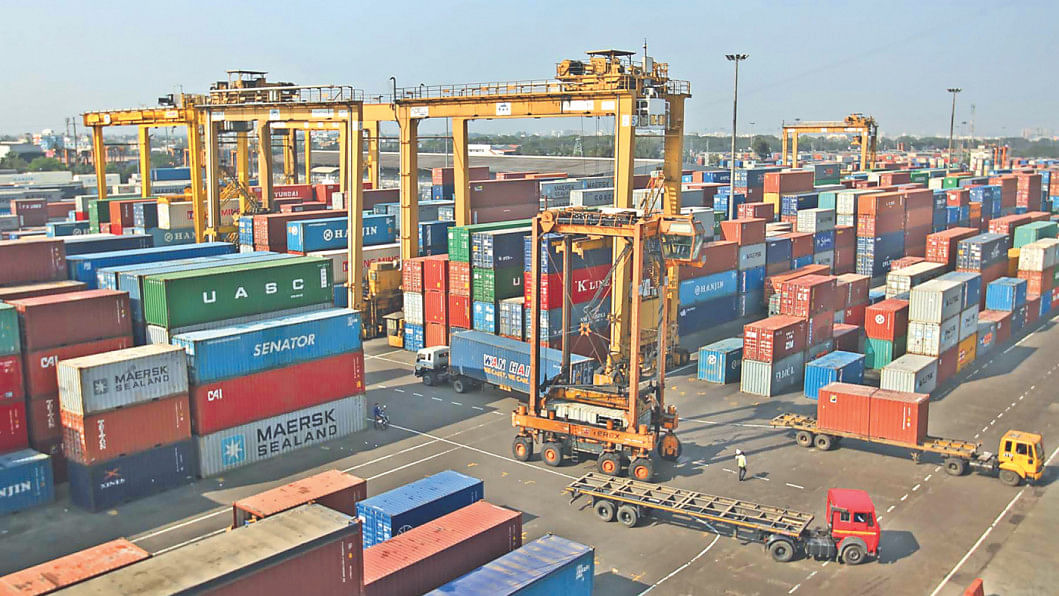Expedite negotiations for trade deals: expert

Bangladesh should expedite talks for trade deals with major partners like Canada, India, Japan and China to retain duty benefits after graduating from the Least Developed Country (LDC) status in 2026.
This is because following graduation, the country's garment exports will face duty of 11.5 percent in the EU, 16 percent in Canada, 5 percent in China, 20 percent in India and 8 percent in Japan.
And although local garment makers will continue enjoying zero-duty benefits with the UK, they will face stringent conditions for accessing the market, according to MA Razzaque, national consultant of the Smooth Transition Strategy (STS) for Bangladesh.
The STS is a framework for facilitating a country's graduation from LDC status. The government of graduating LDCs are responsible for developing their own STS taking into account their development goals and other priorities.
The STS for Bangladesh was recently prepared by a subcommittee of the Economic Relations Division in collaboration with other government bodies as well as the country's development and trading partners.
In a document presented recently at an event, Razzaque said Bangladesh should hold discussions with Canada for extending trade benefits under its General Preferential Tariff programme during the transition period.
He also suggested actively pursuing the continuation of duty-free access to India and other trade benefits for Bangladesh following its graduation from the LDC category.
He recommended that Bangladesh go for an Economic Partnership Agreement (EPA) with Japan and a trade deal with China.
Additionally, he urged for establishing a pool of negotiators, undertaking relevant capacity building measures and preparing negotiation programmes to enhance the country's bilateral trade agreements.
Besides, Razzaque suggested negotiating with the EU for removing its safeguards on textile and clothing imports, reviewing the rules of origin framework, and seeking financial and technical assistance for improving compliance with global production standards.
He also placed importance on seeking an extension of the Trade Related Intellectual Property Rights (TRIPS) waiver and pursuing Bangladesh's inclusion as a net food importing developing country.
Net food importing developing countries are classified as those that have a limited food production capacity and therefore rely on imports to meet domestic consumption. The UN currently recognises 48 countries as net food importers.
In line with other strategies, Razzaque prioritised tackling inflation, ensuring effective exchange rate management, sustaining a uniform and market-oriented exchange rate system, continuing market-oriented interest rate policies, and seeking concessional long-term financing from development partners.
He also said Bangladesh should go for budget financing using sustainable debt management, reducing excessive domestic borrowing from banks, and implementing effective planning and budgeting practices for a smooth graduation.
Razzaque added that Bangladesh needs to improve its export preparedness by aligning its domestic product quality control measures with international standards.
Against this backdrop, he said it is vital to increase the capacity of the Bangladesh Standards and Testing Institution to conduct tests and develop a regulatory framework for enforcing compliance.
Razzaque urged for strengthening the legal framework, enhancing trade union rights, investing in workers' welfare and encouraging firms and businesses to disclose their Environmental Social and Governance (ESG) practices.
He suggested preparing and implementing a comprehensive branding strategy for Bangladesh as well as engaging the country's embassies, foreign missions and communities abroad to promote locally produced goods and foster innovation and design.
Bangladesh is scheduled to graduate in November 2026 but is yet to sign any major trade deal other than a Preferential Trade Agreement with Bhutan.
Of the country's total exports, 73 percent is conducted under LDC benefits in 38 markets. As such, Bangladesh is the biggest beneficiary of such trade benefits among all LDCs.

 For all latest news, follow The Daily Star's Google News channel.
For all latest news, follow The Daily Star's Google News channel. 



Comments